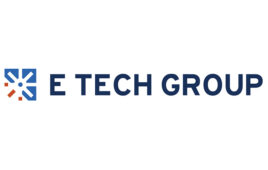
Masimo CEO Joe Kiani [Image courtesy of Masimo]
About 53% of voting shareholders voted against the patient monitoring tech company’s handling of executive pay in what’s known as the “Say-on-Pay” vote, according to vote results of the May 26 meeting filed with the SEC yesterday. The vote comes on the heels of Say-on-Pay votes at Zimmer Biomet and Henry Schein in which support from investors was lackluster.
In fact, dozens of major U.S. companies — including JPMorgan, Intel and Coca-Cola — have faced shareholder rebukes over executive pay this year, according to a report from The Wall Street Journal. The newspaper cited the trend as part of an overall increase in investor scrutiny of corporate governance — as well as social and environmental issues.
A Masimo spokesperson could not be immediately reached for comment.
Because these are advisory votes, a corporate board doesn’t have to take action in response. Executive pay is not immediately affected — if ever. Still, Say-on-Pay votes give investors an opportunity to put the board and top executives on notice.
Masimo’s proxy statement actually showed mostly modest increases in executive compensation in 2021. Total compensation for CEO Joe Kiani, for example, was roughly $16.2 million — up nearly 4.7% from the year before. Kiani’s compensation included a roughly $1.2 million base salary and $9.0 million and $3.0 million in stock awards and option awards respectively.
A year ago, 81% of shareholder votes cast were in favor of the previous year’s compensation package for top Masimo executives, according to the proxy. With continued stockholder support, there were no significant changes to executive compensation programs in 2021.
The Masimo board’s compensation committee has believed that the current long-termed incentives equity award structure focuses the company’s named executive officers on “driving increased stockholder value over a multi-year period and enables us to achieve our retention objectives, while maintaining a conservative approach to overall share usage,” according to the proxy statement.
Masimo has been making some big moves in recent months. In April, it closed on its $1.025 billion acquisition of Viper Holdings, the parent company of Sound United and its high-end sound and home theater systems. Kiani noted in early May that there are “combined efforts to generate some exciting new product launches in consumer health and wellness.”
Masimo is also engaged in a limited consumer release of its much-anticipated W1 health watch.
Needham & Co. senior research analyst Mike Matson has a Buy rating on MASI shares. In an update posted today, Matson said: “We believe that the combination of MASI’s technologies and Sound United’s channel should drive adoption of its smartwatch and that even a niche product with limited share could become a meaningful growth driver that adds several points to MASI’s revenue growth.”





There is certainly a point at which compensation becomes obscenely excessive, It is brought about by boards of directors deciding that “it is not their money” and so they have nothing to push against excessive compensation.
The first problem that such excess leads to is that the receiver becomes quite isolated from reality by that level of wealth.. Leaders really should be aware of how the rest of society lives.
In addition, more should be invested back into the organization, both in development and in the rest of the employees, because without all of the workers efforts even the very best, most brilliant, leader is a soloist. (Even Mic Jagger needs a band behind him.) There are very few organizations that have no need to invest in their future.